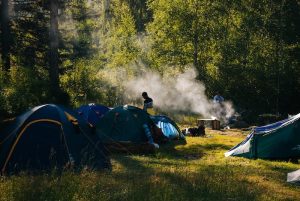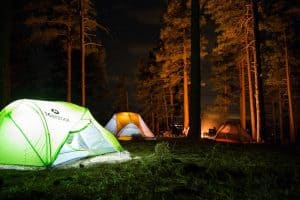In America, it is perfectly legal to drive your car out into the wilderness and set up camp for the night. But if you want to do the same thing in Europe, you could be breaking the law. Wild camping, also known as dispersed camping, is a type of camping in which campers choose their own sites, instead of using an established campsite, is illegal in many countries because it can damage sensitive ecosystems and disturb other campers. So why is wild camping illegal? Continue reading below to learn more about it.
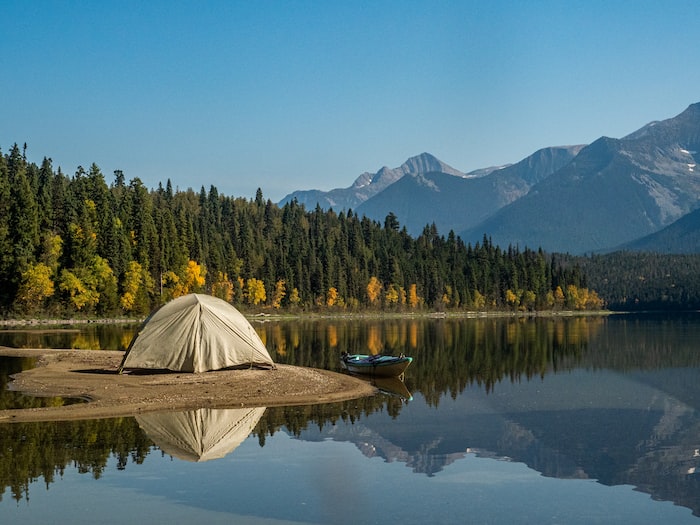
Is Wild Camping Legal in US?
In the United States, wild camping also known as free camping or stealth camping, is legal in most areas. There are a few exceptions, such as national parks and other protected areas, but in general, you can camp anywhere you want on public land.
There are a few reasons why wild camping is legal in the US. First, there is a lot of public land available for camping. Second, the US has very lenient laws regarding property rights. This means that people are allowed to camp on their own land without having to get permission from the government or other landowners.
Finally, wild camping is seen as a low-impact activity that can be enjoyed by everyone. There are no environmental concerns associated with it, and it doesn’t require any special equipment or skills. This makes it an ideal activity for families and beginners alike.
Places Where Wild Camping Considered Illegal
There are many places in the world where wild camping is considered illegal. In some cases, this is because of the environmental impact that it can have. In other cases, it is because of the safety concerns that come with camping in remote areas. Here are some of the places where wild camping is considered illegal:
Australia
In Australia, wild camping is only allowed in certain areas. This is because of the potential damage that it can cause to the environment.
England and Wales
In England and Wales, wild camping is only allowed on land that has been specifically designated for it. This includes national parks and forests.
Scotland
In Scotland, wild camping is only allowed on land that has been specifically designated for it. This includes national parks, forests, and certain parts of Loch Lomond and The Trossachs National Park.
Fun Outdoor Quiz
Northern Ireland
In Northern Ireland, wild camping is only allowed in certain areas. This includes most of the National Trust and Forest Service owned land. In Northern Ireland, Wild Camping is strictly prohibited on all land owned by the Ministry of Defence (MoD).
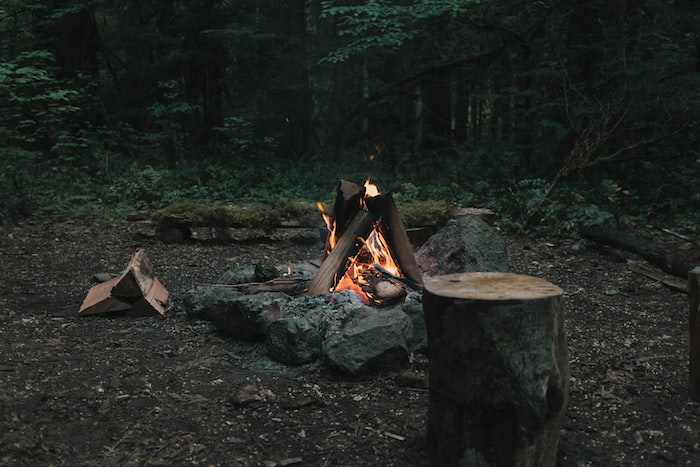
The Impact of Wild Camping
Wild camping, also known as stealth camping, is spending a night in the wilderness without leaving behind any trace. This means no tents, no campfires, and no litter. Many people choose to wild camp because it is free and allows them to get closer to nature.
However, wild camping is not always legal. In some countries, it is against the law to camp anywhere outside of designated campsites. This is because wild camping can have a negative impact on the environment. When done improperly, it can damage vegetation and leave behind trash and human waste. It can also disturb wildlife and create safety hazards for other hikers.
Despite its challenges, wild camping can be done responsibly with minimal impact. If you are considering wild camping, make sure to research the laws in your area and take steps to Leave No Trace.
The Reasons for Wild Camping’s Popularity
In recent years, wild camping has become increasingly popular, particularly among young people. There are a number of reasons for this popularity.
One reason is that wild camping can be a very cheap way to holiday. If you have your own equipment, all you need to pay for is the cost of getting to your destination and back again. This can be particularly appealing at a time when many people are feeling the pinch financially.
Another reason is that wild camping can offer a sense of freedom and adventure that is not always available when staying in more conventional accommodation. When you camp in the wild, you are completely at nature’s mercy and this can be a very exhilarating experience.
Finally, wild camping can help you to appreciate the beauty of our natural world in a way that is not always possible when staying in towns and cities.
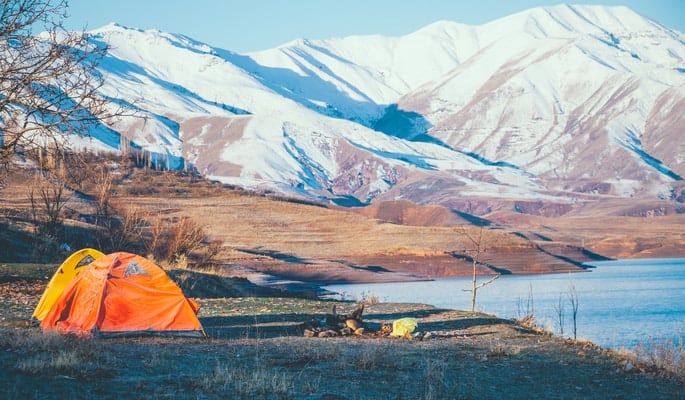
The Dangers of Wild Camping
Wild camping often seem as a way to avoid paying fees associated with developed campsites. While wild camping can be a great way to save money and enjoy nature, there are several dangers associated with the practice.
One of the biggest dangers of wild camping is getting lost. When you’re out in the wilderness without any developed trails or campsites to guide you, it’s easy to wander off course. This can leave you stranded overnight in unfamiliar territory, which can be dangerous or even deadly.
Another danger of wild camping is encountering wildlife. While some campers may relish the idea of seeing bears or other predators up close, it’s important to remember that these animals can be dangerous.
The Benefits of Wild Camping
There are many benefits to wild camping, also known as dispersed camping. For one, it’s a great way to save money on lodging. Instead of spending money on a campsite or hotel, you can just pitch a tent in the wilderness. This is especially beneficial if you’re planning a long trip and want to keep your expenses low.
Another advantage of wild camping is that it allows you to get away from the crowds. If you’re looking for a more solitary, peaceful experience, then dispersed camping is definitely for you. You can find a spot far away from any hiking trails or roads and really enjoy the quiet beauty of nature.
Finally, wild camping can help you connect with the natural world in a deeper way.
The Future of Wild Camping
There is no doubt that wild camping is on the rise. With the ever-increasing popularity of outdoor activities like hiking and climbing, more and more people are looking for ways to spend time in nature. Wild camping offers a unique opportunity to do just that.
Despite its growing popularity, wild camping remains illegal in many places. This is often because it is seen as a potential threat to the environment. However, with the proper precautions in place, wild camping can be done in a way that is safe for both campers and the environment.
The future of wild camping will likely see more people doing it in more places. As long as campers take care to minimize their impact on the natural world, there is no reason why this shouldn’t be the case. With a little bit of effort, we can all enjoy the beauty of nature without harming it.




